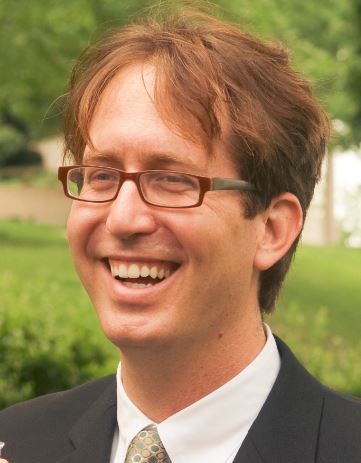Meet Joseph Harris, Metrobridge’s New Faculty Director
We are happy to announce Associate Professor of Sociology Joseph Harris will be joining the Initiative on Cities (IOC) as the MetroBridge Faculty Director. His research is situated at the interstices of sociology, political science, and public health and explores the politics of global health. He holds the 2017 Gitner Award for Distinguished Teaching, the College of Arts and Science’s highest teaching award, and served as a BU Hub Teaching Excellence Faculty Fellow between 2020-21 and Provost’s Mentor Fellow in 2022-23.
Professor Harris expressed his excitement to get more deeply involved with the IOC and further the program: “I look forward to working with the fantastic team that is in place to expand awareness of the fantastic opportunities MetroBridge offers faculty and students and get more people involved in what we are doing.”

MetroBridge embeds real-world projects for municipalities and community organizations into courses at BU, enlisting our students and faculty as allies in addressing urban issues. The program cultivates projects by seeking out the distinct research needs of cities, towns and community-based organizations and collaborating with faculty across the university to find the best course match for each project.
The New Bedford Public Health Department and the City of Boston’s Office of Environment, Energy and Open Space have served as clients for Professor Harris’ MetroBridge courses.
“MetroBridge is a win-win-win. Students win by virtue of getting to engage meaningfully in a project with practical implications,” Harris said. “Professors win by getting to teach students in new ways and by learning about important issues from engagements with clients. And clients win by getting impactful work products from students.”
Professor Harris currently sits on the Advisory Board for the College of Arts and Science’s Experiential Learning Connector. A committed proponent of experiential learning, he said: “Students gain practical experience doing the kind of work that they hope to be involved in professionally after they graduate. In the process, they learn how to operate in professional environments and produce professional grade reports, memos and presentations, developing high-quality writing samples that take aim at difficult problems and meaningfully contribute policy solutions.”
Recently elected Vice Chair of the International Studies Association’s Global Health Section, Professor Harris’ other professional engagements include membership in the Studies in Comparative International Development editorial collective and co-founder of the American Sociological Association’s Global Health and Development Interest Group. He is author of Achieving Access: Professional Movements and the Politics of Health Universalism (Cornell University Press, 2017).
He has received two Fulbright scholarships for his research on the politics of health policy in Thailand. As a graduate student, he was involved in an experiential learning course on U.S. responses to fragile and failed states that involved travel to Brussels and Liberia.
“I am drawn to MetroBridge because experiential learning makes subject matter come alive for students and can have practical impact in the world,” Harris said. “Students gain practical exposure to real-world problems and professional environments through MetroBridge. It is a deeply professionalizing experience for students and one that students get up for.”